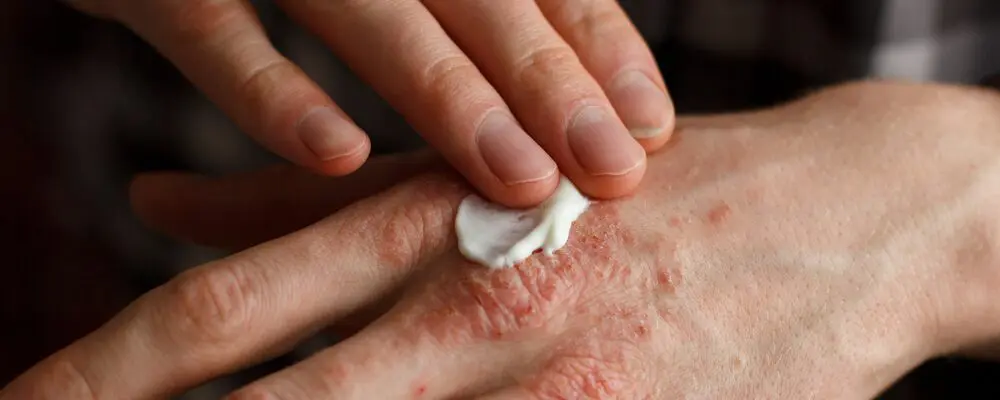Introduction
Eczema, also known as atopic dermatitis, is a very common skin condition marked by inflammation, redness, and itchiness. Approximately 31.6 million individuals in the United States, constituting 10.1% of the population are affected by various forms of eczema, with the highest prevalence occurring in early childhood.
Those suffering from this condition may encounter flares, characterized by flaky, dry, itchy and painful skin. There can be several factors that can trigger episodes of this condition such as stress, irritating detergents, certain skin products, or sometimes it can occur even without any apparent reason.
Fortunately, for someone with relatively fewer symptoms, moisturizers can help manage the condition. However, for those with moderate to severe eczema, opting for potential treatment options can help manage the condition.
Before Taking the Eczema Quiz, Be on the Lookout for these Specific Symptoms of Eczema
- Persistent dryness and itching of the skin
- Inflamed patches on specific areas of the skin
- Pain or discomfort associated with the skin condition
- Sleep disturbances due to persistent itching
If you are currently experiencing any of the above-mentioned symptoms, it is advisable to proceed with the Eczema Quiz to gain further insights into your condition.
[WATU 2]
Also read: All You Need To Know About Eczema Flare-ups
What Helps with Eczema?
Upon completing the quiz and finding that most of your symptoms suggest atopic dermatitis or eczema, take comfort in knowing that you are not alone in facing this skin condition. Fortunately, there are effective strategies to manage your condition, including:
- Regular Application of Moisturizer: Regularly applying a good moisturizer can help maintain skin hydration, reducing the likelihood of dryness and discomfort associated with the condition.
- Monitoring Your Triggers: Identifying triggers such as harsh soaps, stress or certain allergens to minimize flare-ups can help manage symptoms and prevent exacerbations.
- Utilizing Wet Wraps: Using wet wraps during flare-ups can provide relief by enhancing moisture retention, contributing to the alleviation of condition-related pain.
- Opting for Sensitive Skin Products: Opting for skincare products designed particularly for sensitive skin minimizes potential irritants, fostering a supportive approach to atopic dermatitis care.
- Exploring Alternative Therapy Options: Discovering alternative therapies, involving therapeutic community groups and eczema clinical trials at the Revival Research Institute, offers potential treatment options for the management.
However, it is crucial to consult a healthcare professional before seeking treatment options.
Note: This quiz only serves as an informative tool and is not a substitute for any medical diagnosis. It is crucial to not solely rely on quizzes for a definite conclusion. For accurate assessment, consult a dermatologist who can provide a thorough examination tailored to your specific skin condition needs.




